Note: You are viewing an old revision of this page. View the current version.
 Pari is an Italian company located in Castelfidardo near Ancona.
They produced tonewheel organs in the 1970's,
and have recently started production
of a brand-new electromagnetic Hammond clone.
Pari is an Italian company located in Castelfidardo near Ancona.
They produced tonewheel organs in the 1970's,
and have recently started production
of a brand-new electromagnetic Hammond clone.
The generator of Pari organs was created by Anton Parie, who started production of an electromagnetic organ in Belgium in the early '60s.
Around 1969, production of the XTO model was moved to Italy by Alfredo Gioielli, and the "golden age" of Pari began. In the '70 Pari factory produced many models like the XTO and the ATTACK, very good instruments made for home or stage use, that, in many cases were preferred to hammonds because they were lightweight and more aggressive-sounding, a "must" for '70 rock or progressive bands. They made other models like the x150, Kotra, and k-61 (that means 61 waterfall keys in each manual) and also some models of "leslie" clones.
Technically Pari organs had same good sounding related to hammonds: tonewheels, analog spring reverber system, vibrato scanner and tubes in all sound processing. For many people the fact that the gearwheels are made of plastic seems very strange: truly the system is simple but very good, in fact it reduced the noise of rotating wheels, the only problem was the lubricating system that, after a long use, made the wheels harder and glassy for the use of oil and finally broke them. Unfortunately Pari factory closed production in the late '70 and for many years find a new set of plastic wheels was very very difficult expecially out of Italy.
In 2005 Pari factory re-opened with the name of "PARI.E" the means "pari-electromagnetic" starting the production of a new organ, the _new K-61_ that is the only electromagnetical organ made now in the world. This re-opening means also availability of new sets of gearwheels for people that still have old Paris. In fact the new one have the same tonewheel generator but doesn't have the lubrication system anymore. The new K-61 is a big step ahead because combines perfectly the old experiences with new technology: better sounding, better materials choice, customer support, and less weight --- in short, "the electromagnetic organ of the new millennium".
The Pari's were more-or-less copies of Hammond ToneWheel spinets.
Some of the details of their construction were different, however.
For example they used "tone drums" in the tone generator rather than Hammonds discrete ToneWheels.
A more complete write-up (written by HenningHøjen) about the workings of the old Pari's (along with nice pictures of the guts) can be found at  http://www.hammond-leslie.info/pari/.
http://www.hammond-leslie.info/pari/.
In the latter part of 2006, Pari started production of a new two-manual organ, the _new K-61_ (and a portable version, the K-61P).
The  Pari web site provides scant details on the new organ.
The description and pictures below come from Pari's sales manager, Mauro Baldassari.
They were relayed to me by HenningHøjen.
Pari web site provides scant details on the new organ.
The description and pictures below come from Pari's sales manager, Mauro Baldassari.
They were relayed to me by HenningHøjen.
The new model can be ordered with or without the reverse-colored preset keys, and with or without bass-pedals (13 and 25 note pedal claviers are available.) The electronics are tube driven, and it has scanner vibrato and percussion. The organ requires no lubrication. Best of all, the organ (without pedals) weighs 45 kg (just under 100 lbs.)
Pari also makes tube-powered Leslie clones to go with the new K-61.
The new Pari.e K-61~:
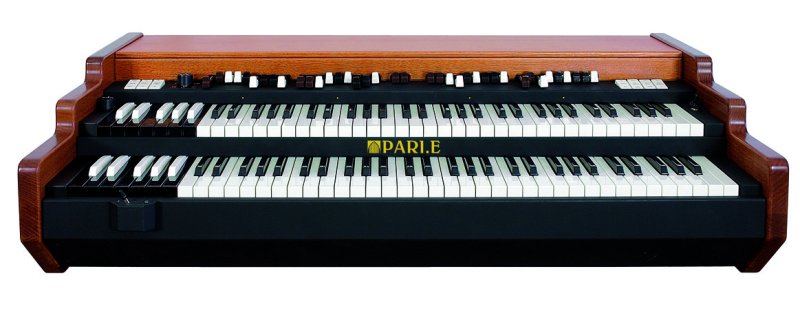
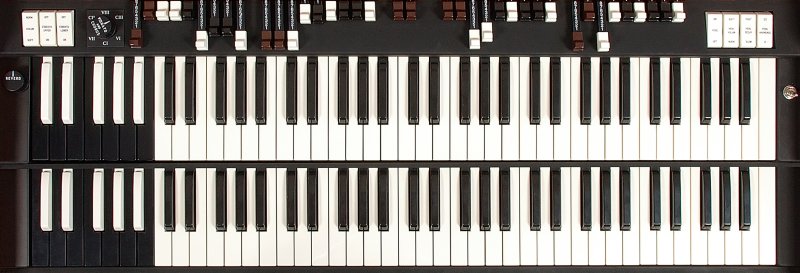
The portable version~:
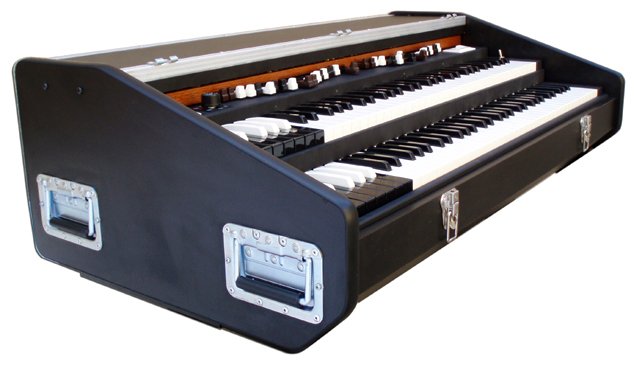
Back view, showing the tone generator~:
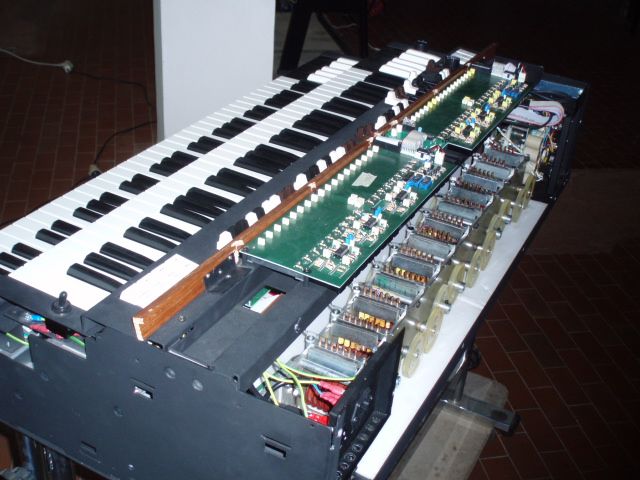
Another back view~:
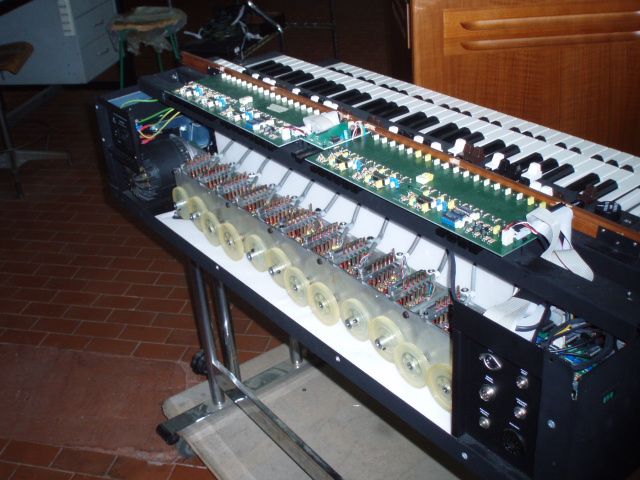
Here's a four-page PDF  sales brochure about the K-61.
sales brochure about the K-61.
The new K-61 is reviewed in the  January/February 2007
issue of the German organ and keyboard player's magazine
January/February 2007
issue of the German organ and keyboard player's magazine  Okey.
Okey.
The content of this page is Copyright (C) 2000, 2001, 2002 Geoffrey T. Dairiki and
the other authors of the content, whoever they may be.
This is free information and you are welcome redistribute it
under certain conditions; see
http://www.dairiki.org/HammondWiki/opl.html for details.
Absolutely no warrantee is made as to the correctness of
the information on this page.